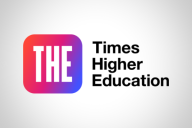You have /5 articles left.
Sign up for a free account or log in.
A federal jury on Monday rejected a lawsuit by a prominent conspiracy theorist who claimed Florida Atlantic University fired him for his views, and in doing so violated his First Amendment rights.
The university fired James Tracy, a tenured associate professor in the School of Communication and Multimedia Studies, in 2015, after years of controversy over his blog, but the university said that his writings were not the reason for his firing. Rather, the university said that he refused to follow university rules for all faculty members, such as requirements about filing reports about outside activities. The university also at various times complained that Tracy did not take reasonable steps to disassociate his blog from the university.
While Tracy endorsed a number of conspiracy theories, the dispute over his blog came to a head over his assertion that the 2012 mass killings at Sandy Hook Elementary School never took place. The parents of one of the children killed there drew attention to Tracy's writings and wrote that Tracy "is among those who have personally sought to cause our family pain and anguish by publicly demonizing our attempts to keep cherished photos of our slain son from falling into the hands of conspiracy theorists."
Florida Atlantic was able to point out at the trial that it defended Tracy's right to free speech for years, and that -- when it fired him -- it cited rules he broke, not his writing. Tracy and his lawyers argued that the rules were just a pretext for his firing.
The Palm Beach Post reported that, after reporters followed Tracy and his lawyers from the courthouse Monday, one of the lawyers shouted "Shame on you fake news" at the journalists, whom he called "presstitutes."
During the trial, Tracy's lawyers tried to frame the case as about academic freedom, which at a public university such as Florida Atlantic is protected by the First Amendment. But FAU framed the case as about insubordination.
Florida Atlantic officials testified during the trial that Tracy's promotion of conspiracy theories brought negative publicity to the university and frustrated many, but that they resisted calls to fire him. They said that he violated rules about reporting outside activities for a two-year period before the university acted.
The jury foreman told The Sun Sentinel, "We just tried to stay away from the emotion of the case and we focused on the evidence, not hearsay or opinions."







